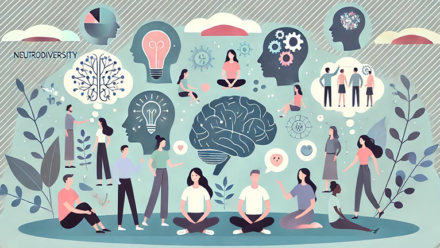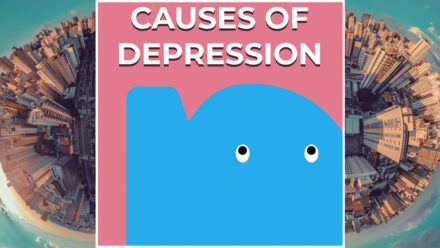
Primary negative symptoms. It doesn’t sounds particularly pleasant. And in the psychiatric field, they are notorious: withdrawal behaviour, loss of motivation, not being able to experience joy, feeling jaded, being quiet, etcetera.
These are symptoms we often see in people who suffer from psychosis. But where do they come from?
What are primary negative symptoms?
Since the olden days, we have made a distinction between primary and secondary symptoms. The primary ones would be a direct result of the condition itself, as if they are created in our brain somehow. The secondary would arise from different causes, like side effects of medication, depression, fear, demotivation, overstimulation, or even the hopelessness of a life full of stigma and loneliness.
The problem with ‘primary’
What is a primary negative symptom exactly? How do you know that someone’s lack of motivation stems from their brain, rather than from being tired of the side effects of their medication? Or because they are being excluded from a job, school, or friendships? Or from ending up feeling useless after years of struggling with a stigmatising diagnosis and a course of treatment that keeps pointing out their ‘shortcomings’?
The answer is: you don’t know. And you have now way of knowing. There is no brain scan, or test that can prove: that is primary! Or: this is secondary! The idea alone that negative symptoms come from within, without any context, is suspicious. Because people always function within a context – rationally, socially, and psychologically.
Antipsychotics: what numbs something, numbs everything
What we do know, is that antipsychotics often numb the things that give us motivation: your desire, your hunger, your initiative, your craving for contact, or meaning. Because yes, they were designed to numb your restlessness and psychosis – but what if they also numb your ability to experience joy, and pleasure?
People often say they feel “jaded”, “indifferent”, or “not themselves” on this medication. They want to do something, but don’t feel anything. And who feels motivated, without any emotional reward?
This is not an afterthought. This is the key problem. And it’s exactly why it’s so important that every patient gets help with finding the lowest possible effective dose of medication. They should not be prescribed the standard dose, the one that is prescribed most often, but a dose that really helps, with as little loss of feeling, initiative, and zest for life as possible.
Depression, stigma, and demotivation: are they all secondary?
And then there’s the secondary symptoms: depression, anxiety, trauma, shame, chronic stress, isolation, racism, homophobia, rejection; these are all things that can undermine motivation and are often not tackled during standard psychological treatment.
That’s why it’s time to acknowledge: the idea that primary symptoms come from within a person, is not realistic. We have to consider all negative symptoms as a result of something – whether it’s medication, depression, environment, or a lack of support or hope.
So what does help?
What do people who suffer from psychosis really need? Social prescription. No pills, but a plan. Not a label, but an invitation. Think of it like a prescription for well-being; helping someone to take part in something. Something creative, something social, something meaningful. Think recovery academies, contact with fellow sufferers, exercise, art, gardening, cooking together, music, dance, and building hope.
Because motivation only flourishes if it leads to a ‘reward’. And something meaningful.
So let’s stop obsessively naming symptoms as primary or secondary. Let’s acknowledge, that all symptoms are essentially secondary – in the sense that they are always a result of conditions, context, and treatment. And let’s listen to what people themselves say what they’re missing, what they desire, and what they need. Now that would be positive psychiatry.





‘ The idea that primary symptoms come from within is not realistic.’
‘ And that is why it’s so important finding the lowest possible dose of medication.’
‘ Social Prescription : No pills but a plan. Not labels but an invitation. ‘
😭 Amen!! Thank you.